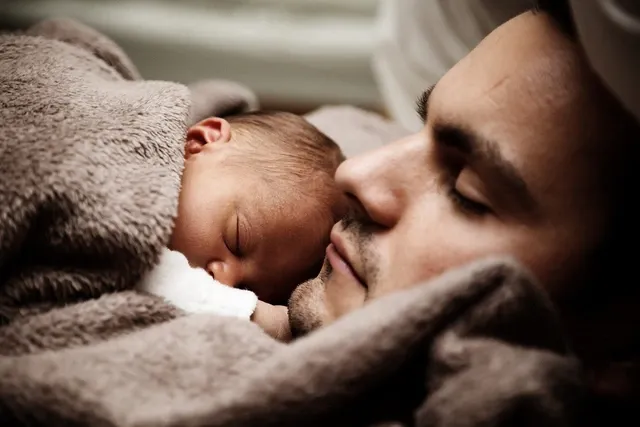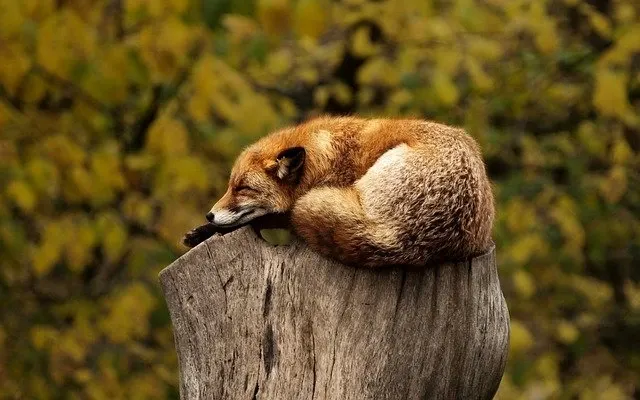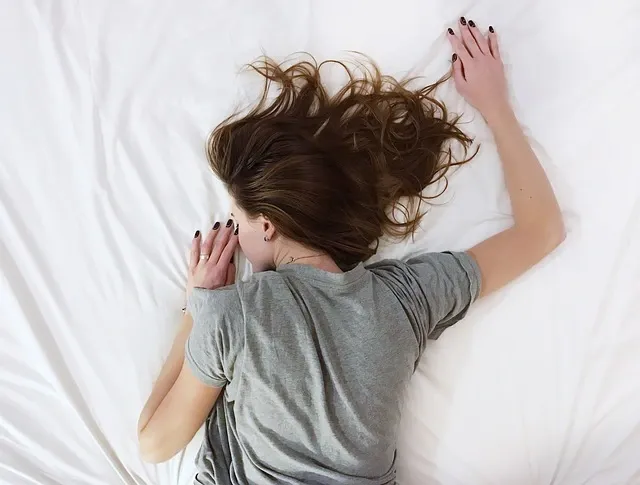 |
| PublicDomainPictures/Pixabay |
One of the innovations of the modern world is our tendency to prescribe everything in specific doses. 2.5 hours of physical activity per week, 25 g of fiber per day, 8 hours of sleep. It is unclear where and why these 8 hours originated, but in the late 19th century, striking workers used to walk the streets chanting, "8 hours to work, 8 hours to rest and 8 more to do what we want!".
Despite these common perceptions, the world is full of people who like to stay up late but feel perfectly fine. Should they be considered abnormal? Are they detrimental to their health? And how do we compare with other animals in this regard?
The exercise paradox
Paleontologist and evolutionary biologist Daniel Lieberman explores how the exercise habits of modern humans have changed compared to those of pre-industrial society. In The Exercise Paradox, he shares his observations. Among them, sleep habits.
How animals sleep
As far as sleep is concerned, there are no patterns in either humans or mammals. Donkeys sleep only two hours a night, while the nine-legged armadillo sleeps twenty. Some animals, such as giraffes, like to sleep often, but little by little; other species prefer to sleep all at once, but continuously.
 |
| Pexels/Pixabay |
How does a bee sleep?
Some large animals, such as elephants, are able to snooze standing up; more surprisingly, marine mammals, including dolphins and whales, have evolved the ability to sleep with one half of their brain while swimming, while the other half is awake at the same time.
Considering that sacrificing a third of one's life, or even more, for sleep is an extremely important decision, it is not surprising that natural selection has produced an unprecedented variety of sleep rules and patterns. However, in all attempts to make sense of this diversity, very few correlations have been identified, and weak ones at that.
The strongest correlation is between sleep duration and the species' role in the food chain: vulnerable species that forage tend to sleep less than the carnivores that eat them. Another correlation is that larger animals, which have to spend more time foraging, tend to sleep less. Otherwise, it is inexplicable why some animals sleep more or less than others.
Regardless of the factors that account for the striking diversity of sleep habits, most mammals generally spend between eight and 12 hours a night in the embrace of Morpheus, and most primates between nine and 13. Our closest relatives, chimpanzees, give up an average of eleven to twelve hours of sleep per night.
Is it all the fault of the electricity?
And where did this holy grail of eight hours of sleep come from? Most people in Western societies are not indicative if we are talking about humanity in the days before the Industrial Revolution. To what extent have our sleep patterns been distorted by alarm clocks, electric lights, smartphones, and other enemies of sleep such as work, train schedules, and nightly news broadcasts?
We are fortunate that scientists were concerned about these questions in time and that new technologies have provided a wealth of reliable data on the sleep of non-Western peoples. The study by somnologist Jerome Siegel and his colleagues at the University of California, Los Angeles (UCLA) is the most curious of all. They attached wearable sensors to ten Hadza hunter-gatherers in Tanzania, thirty San gatherers in the Kalahari Desert, and fifty-four hunter-gatherers in the Bolivian Amazon rainforest. None of these peoples have electricity, much less a watch or Internet access.
So what? To Siegel's surprise, the people studied tended to sleep less than those in the Western world. In the warmer months they slept an average of five and a half to six and a half hours a night, while in the colder months they slept an average of six and a half to seven and a half hours a night. They also rarely indulged in a nap during the day.
Follow-up studies of the sleep habits of Amish farmers, who for religious reasons do not accept electricity, and of other non-Western cultures, such as the rural population of Haiti and the primitive peasants of Madagascar, have found a similar average sleep duration of six and a half to seven hours per night.
Therefore, there is no evidence that people in pre-industrial times slept more than those in industrial and post-industrial times.
Moreover, if you look closely, there is very little empirical evidence to suggest that average sleep duration in the Western world has decreased significantly over the past half century. In short, the closer you look, the less reason there is to proclaim eight hours of sleep as the norm.
Long sleep - short life
 |
| StockSnap/Pixabay |
According to Kripke's findings, Americans who slept between eight and 12 hours a night had a 12% higher mortality rate than their compatriots who slept between six and a half and seven and a half hours a night. Not only that, mortality rates were 15% higher among sleepers who reported sleeping more than eight and a half hours per night, but also among those who slept less than four hours.
Critics were quick to point out the study's shortcomings: the fact that it was based on self-reported data; that heavy sleepers might already be suffering from some disease; and that the correlation was still not causal. Since then, however, numerous studies, conducted with more reliable data and more sophisticated scientific methods that take into account factors such as age, disease and income level, have only confirmed that people who sleep about seven hours a night live longer than those who sleep more or less.
It should be noted that none of the studies indicated eight hours as the optimal sleep duration, and most studies have shown that people who sleep more than seven hours per night have a shorter life span than those who spend less time sleeping at night (but it remains to be seen whether the longevity prospects of sleepers would improve if they reduced their nightly sleep).
Awesome?
Although the need for eight hours of sleep is a myth, what about your models? We may sleep the same number of hours, but in different ways. Larks go to bed early and get up early, while owls stay up late and possibly get up around noon. It turns out that these two opposing tendencies are largely hereditary and very difficult to overcome.
Not only that, but as we get older we sleep less and wake up more easily. Many people sleep through the night, but there are others who wake up during the night and may stay awake for an hour or even two before falling back asleep.
The debate over the normality of these changing patterns has been ignited by anthropologist Carol Wortman and historian Roger Ekirch. They argue that before the Industrial Revolution, the normality of nighttime sleep consisted of people waking up in the middle of the night and staying awake for about an hour before falling back asleep. Between the first and second snooze, people socialized, had sex or prayed. Electric lighting and other industrial inventions had the potential to change sleep patterns.
However, sensor research among peoples of non-Western cultures has revealed a more complex picture. Most foragers in Tanzania, Botswana and Bolivia sleep through the night, while primitive farmers in Madagascar often split their sleep into two parts.
Most biological phenomena are characterized by wide variations, and sleep is no exception.
When differences in circadian rhythms and individual regulation of wakefulness and sleep are taken into account, human sleep patterns vary as much as those of other species. Moreover, no single pattern can be identified, whether among city dwellers surrounded by a sea of lights in New York and Tokyo, or among indigenous ethnic groups on the African savannah and in the Amazon rainforest who do not use electricity at all. For example, anthropologist David Samson measured the nighttime sleep duration of twenty-two hunter-gatherers over twenty days in a Hadza camp, revealing great variety in nighttime sleeping habits and calculating that at least one Hadza at night is sure to be awake for at least eighteen minutes.
From an evolutionary perspective, this variation is probably adaptive in nature: we are most helpless and vulnerable precisely when we sleep during the most dangerous hours of the night. Having at least one awake person in the camp, almost always an older person alert to nighttime noises, was supposed to reduce the dangers of a night full of lions, leopards, and two-legged enemies ready to do you harm.

